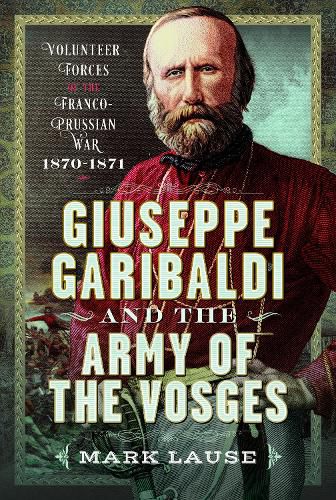Readings Newsletter
Become a Readings Member to make your shopping experience even easier.
Sign in or sign up for free!
You’re not far away from qualifying for FREE standard shipping within Australia
You’ve qualified for FREE standard shipping within Australia
The cart is loading…






Sixty years before the International Brigades fought for the Spanish Republic, international volunteers entered the Franco-Prussian War of 1870-71 in response to the call of Giuseppe Garibaldi's Army of the Vosges to save a fledgling French republic there from the new Prussianized German empire. Inspired by the lingering radical visions of 1848 and supported by elements of the First International of Marx and Bakunin, several thousand men (and women) came not only from neighbouring Spain, Italy, and Belgium but from Germany itself, as well as the Mediterranean societies and as far as the Americas to fight for a ?universal republic?. Garibaldi and his volunteers faced enemies ultimately more powerful than the Prussian-led German Confederation. The French imperial interests that had started the war remained an ultimately dominant force in the republic and their hostility to ?red republicanism? was evident even before their bloody repression of the Paris Commune. They shaped the histories of the war, the international volunteers and the French who fought alongside them. This study explores the politics of constructing historical memory to challenge that narrative and offers a different assessment of contemporary before its translations into the new language of anarchism and socialism. AUTHOR: Mark A. Lause is a retired professor of history from the University of Cincinnati who remains an active researcher and scholar. A boomer from a mid-twentieth century factory town, he became a historian of the economic, social, and political aspirations of nineteenth century laboring people. His nearly twenty books explore the class dimensions of antislavery and egalitarian movements and currents, including: land reform, women's rights, and insurgent politics, as well the cultural challenges of bohemianism, spiritualism, and secret societies. Such interests infuse his work on aspects of the American Civil War and Reconstruction, and the Franco-Prussian Wars. 30 b/w illustrations
$9.00 standard shipping within Australia
FREE standard shipping within Australia for orders over $100.00
Express & International shipping calculated at checkout
Sixty years before the International Brigades fought for the Spanish Republic, international volunteers entered the Franco-Prussian War of 1870-71 in response to the call of Giuseppe Garibaldi's Army of the Vosges to save a fledgling French republic there from the new Prussianized German empire. Inspired by the lingering radical visions of 1848 and supported by elements of the First International of Marx and Bakunin, several thousand men (and women) came not only from neighbouring Spain, Italy, and Belgium but from Germany itself, as well as the Mediterranean societies and as far as the Americas to fight for a ?universal republic?. Garibaldi and his volunteers faced enemies ultimately more powerful than the Prussian-led German Confederation. The French imperial interests that had started the war remained an ultimately dominant force in the republic and their hostility to ?red republicanism? was evident even before their bloody repression of the Paris Commune. They shaped the histories of the war, the international volunteers and the French who fought alongside them. This study explores the politics of constructing historical memory to challenge that narrative and offers a different assessment of contemporary before its translations into the new language of anarchism and socialism. AUTHOR: Mark A. Lause is a retired professor of history from the University of Cincinnati who remains an active researcher and scholar. A boomer from a mid-twentieth century factory town, he became a historian of the economic, social, and political aspirations of nineteenth century laboring people. His nearly twenty books explore the class dimensions of antislavery and egalitarian movements and currents, including: land reform, women's rights, and insurgent politics, as well the cultural challenges of bohemianism, spiritualism, and secret societies. Such interests infuse his work on aspects of the American Civil War and Reconstruction, and the Franco-Prussian Wars. 30 b/w illustrations